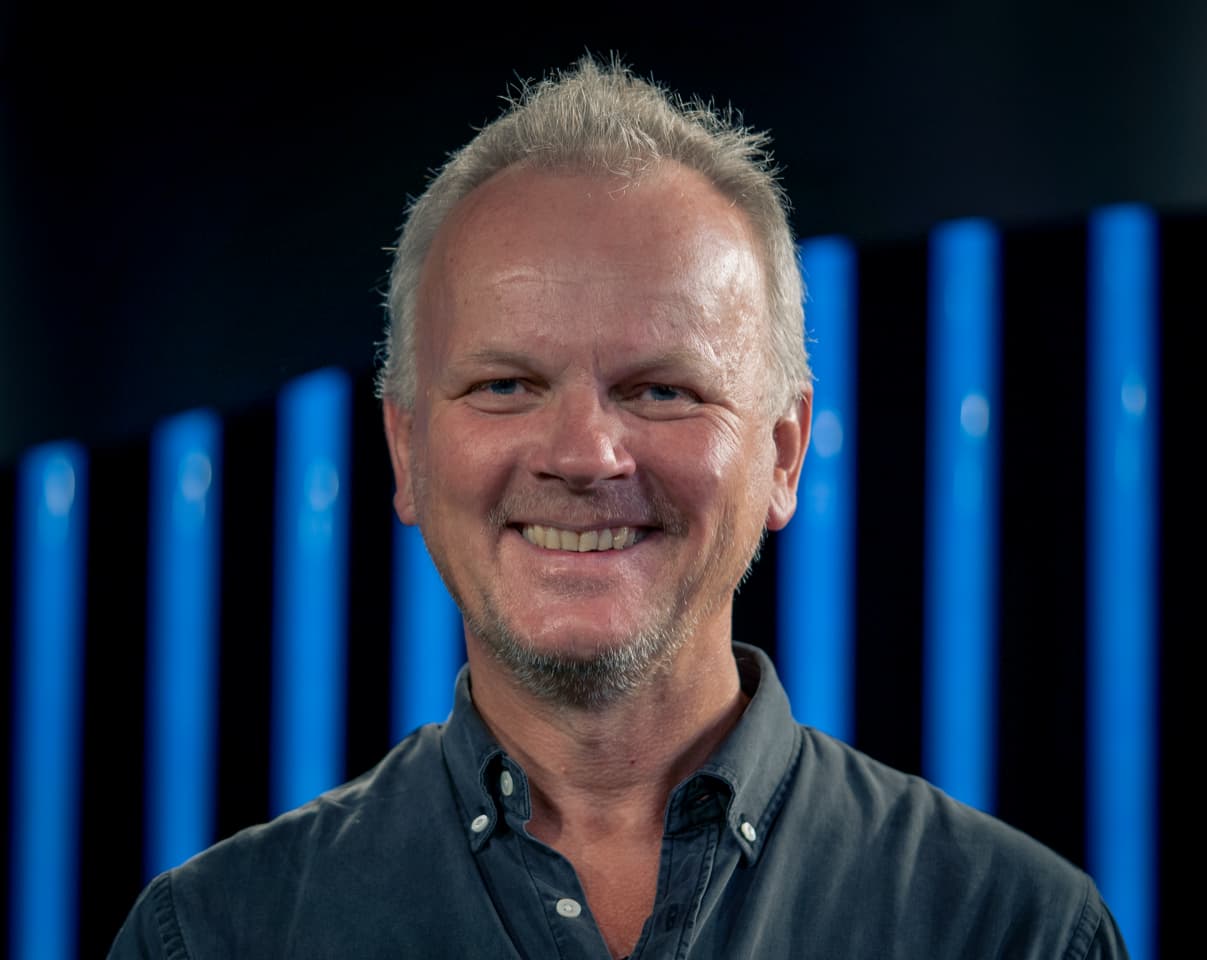Keynote:

30th August
Jan Gulliksen is a professor of Human Computer Interaction from KTH Royal Institute of Technology in Stockholm, Sweden. He is well known for his research work on usability, accessibility, digitalization and digital work environments and user-centered systems design. He recently stepped down as vice president for digitalization from his university and has also been working for the Swedish government advising on politics and policy making in relation to digitalization and for the European Commission through the role as Digital Champion of Sweden. He is the past chair of IFIP TC13 on Human Computer Interaction and is currently one of the vice presidents of IFIP. He is an IFIP fellow and an IFIP TC13 pioneer.
In the spirit of INTERACTs founder Brian Shackel, this conference was founded to bring together academics and industrial practitioners in the field of human computer interaction (HCI) to recognize the profound societal impact that research and knowledge on humans interacting with various forms of technology has. HCI has grown from being a small obscure discipline for computer scientists that were not that good on programming and needed to pick a field that was easy, to being one of the most important and fastest growing professions in the IT sector, through the role that user experience (UX) play. The scientific studies and published papers in HCI has grown much more than many of the other disciplines. How has HCI come to undergo such a development? I believe that there are several potential reasons for this. The transdisciplinary nature, involving true collaboration and a joint understanding between disciplines of very different natures including computer science, behavioral science and design, among other things that are fundamental to the impact. Another value is the ambitions not to bend for the complex ”wicked” problems that human computer interaction addresses but develop the methodology to fit the nature of doing research in the wild on complex problems where many of the involving factors are difficult to control is one of the reasons for the success. The values of addressing and caring about users, regardless of abilities, knowledge level, age or gender is another positive quality that has contributed to the impact. To be able to make the best out of our discipline we should more recognize and cherish the contribution that HCI can make, educate students and the society to understand the impact and make use of all the valuable methods, we need carefully to choose research problems and approaches to maximize the impact and we should to a higher extent take an active role in the contemporary development of the field, actively engage in politics and policy making on AI, digitalization and development for change and make sure that the values of our HCI field permeates all development.

30th August
Rochelle is Head of User Research and user centred design leader for NHS England. She built the organisational user research and user centred design operations capability and is responsible for user research strategy, quality and standards. Rochelle also leads inclusive design as well as the development of user centred design maturity and enabling frameworks. Rochelle trained as an occupational psychologist and has over 20 years' experience of research in the public, private, academic and health sectors. She has previously worked for organisations such as the Probation Service, Commission for Social Care Inspection (now CQC) and the Centre for Criminal Justice, Economics and Psychology at the University of York. She is the founder of a voluntary organisation that raises awareness of a cancer-causing genetic mutation amongst health professions and in the community and supports those with the mutation. She is also a patient representative for related national and international studies.
The first principle of the NHS constitution is ‘The NHS provides a comprehensive service, available to all... It has a duty to each and every individual that it serves and must respect their human rights. At the same time, it has a wider social duty to promote equality through the services it provides and to pay particular attention to groups or sections of society where improvements in health and life expectancy are not keeping pace with the rest of the population. The NHS just celebrated its 75th birthday and inclusivity of services has always been part of its design. In this keynote, Rochelle with discuss the origins and practice of inclusive design in the digital NHS space and the practical reality of strategically leading and delivering it.

31st August
I'm a Human Factors Research Lead in the Audience research area at BBC R&D, where multidisciplinary teams investigate the impact of technology on the BBC and the people we serve. To invent the public service media of the future, we have to be experts, not only in the enabling technologies for immersive, contextualised, algorithm-driven content, but also how to deliver and understand the value of these experiences, considering scale, ethics, quality, impact, and participatory design. I have a lot of experience in developing innovative tools and research methods for directing 360° video, algorithmic explainability, quality of experience evaluation, accessibility and AI in media production. Before joining the BBC in 1999, I was a lecturer in Computer Science at the University of Reading; leading research there into auditory interfaces and co-founding the Signal Processing Laboratory. I got my DPhil in spatial audio and psychoacoustics with BT Labs and the University of York in 1997, and I'm a Chartered Engineer. I have served on the UK research councils’ Programme Advisory Board for Digital Economy and Strategic Advisory Team for ICT. I am also a member of the College of Experts for the UK Government’s Department for Digital, Culture, Media and Sport.
In this talk, I’ll introduce a range of our work from BBC R&D, and especially our Audience Research Area, now a year old. I’ll whizz through the work we’ve done investigating how synthetic cinematography could allow broadcasters to cover the Edinburgh Festival like the Olympics; how creative professionals, like journalists, can better collaborative with algorithmic systems; how to research effectively with the people who create and the people who use media; and how we might help the digital media industry wean itself off metrics that ramp up consumption and bingeing to use measures that reflect human values. I’ll also talk about how we work with our brilliant university partners.

1st Sept
Ann Blandford is Professor of Human–Computer Interaction (HCI) at University College London. She is also a member of the ACM CHI Academy and recipient of an IFIP TC13 Pioneer award. She has led many research projects on the design of systems to support people managing individuals’ health. She works closely with patients, clinicians, and healthcare engineers, in both the UK and internationally. Her current projects address a range of health and wellbeing challenges; these include helping people manage diabetes, sexual health and Long Covid. She has published widely on the design and use of interactive health technologies, and on how technology can be designed to better support people’s needs and values, recognising that people are living complex lives and often managing complex health conditions.
Healthcare is becoming increasingly data-driven, creating many opportunities for novel technologies to enhance health and wellbeing. To minimise inequalities, such technologies should be available to as many people as possible. New technologies create new opportunities, but also disrupt existing practices. At one end of the spectrum, such as intensive care or surgery, novel technologies are designed for the clinical team, aiming to enhance professionals’ workflow and interactions. At the other end we have individuals managing their wellbeing and the focus is typically on creating a positive user experience and engagement. However, most health technologies have to work well for both professionals and lay users (notably “patients”), with their different knowledge, values and goals. This increases the complexity of design and implementation into practice. In this talk, I will draw on experiences of working with clinicians and patients who are collaboratively managing complex conditions such as chronic kidney disease and Long Covid. I will reflect on challenges of designing both specific technologies and systems of care that empower individuals and their clinical teams in supported self-management, with a view to crossing the “valley of death” between great ideas and technologies that have impact at scale.

1st Sept
Jonathan Lazar, PhD, LLM is a professor in the College of Information Studies at the University of Maryland, where he is the executive director of the Maryland Initiative for Digital Accessibility (MIDA), and is a faculty member in the Human-Computer Interaction Lab. Dr. Lazar has over 25 years of experience in research and teaching in human-computer interaction, with a focus on technology accessibility for people with disabilities, user-centered design methods, assistive technologies, web accessibility, and law and public policy related to accessibility and HCI. Dr. Lazar has authored or edited 16 books, including Research Methods in Human-Computer Interaction (2nd edition, co-authored with Feng and Hochheiser), Ensuring Digital Accessibility Through Process and Policy (co-authored with Goldstein and Taylor), and Accessible Technology and the Developing World (co-edited with Stein). His 17th book, Foundations of Information Law (co-authored with Jaeger, Gorham, and Greene-Taylor) will be published in Fall 2023. Dr. Lazar has published over 200 refereed articles in journals, conference proceedings, edited books, and magazines, and has received research funding from the U.S. National Science Foundation, the U.S. National Institute on Disability, Independent Living, and Rehabilitation Research (NIDILRR), Google, and Adobe. He is the recipient of the 2020 ACM SIGACCESS Award for Outstanding Contributions to Computing and Accessibility and the 2016 ACM SIGCHI Social Impact Award, is a member of the ACM SIGCHI Academy, and he served as the general chair of the 2021 ACM ASSETS conference.
Digital technologies and content are often designed without considering the needs of people with disabilities. This means that people with disabilities may be excluded from education, employment, healthcare, and commerce which often require the use of digital technologies and content which are not accessible. If people with disabilities notify the developers or owners, or in some cases take legal action, those digital technologies and/or content are then sometimes retrofitted to become accessible. However, retrofitting for accessibility is problematic for a number of reasons. This keynote will focus on the born-accessible approach to design and development, where accessibility is considered as a primary design goal from the start, people with disabilities are included from the start, and nothing is released that is inaccessible. The born-accessible approach has at least three benefits: 1) When technology is built from scratch to be accessible, people with disabilities receive access to the technologies or content at the same time as everyone else, 2) When using the born-accessible approach, building for accessibility is inexpensive, and 3) Technologies and content that are born-accessible are inherently flexible and innovative, and are more usable by everyone. This keynote will describe the concepts of the born-accessible approach, present examples of the born-accessible approach, and describe a framework for future research into the born-accessible approach.